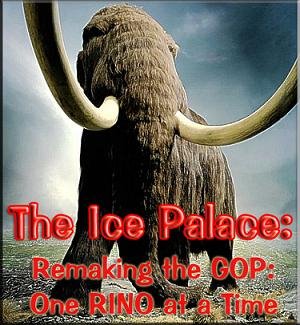Why do Kids Get Violent?
I thought about it for a couple of days, and came up with my own theory. This is by no means "by the book" psychology; rather it is a mixture of psychology and the school of life and hard knocks by which I have come to view the world.
The following is my response:
Why do some kids get violent? In my opinion, it is a multi-faceted problem, stemming from such factors as societal decay, an accompanying cheapening of the value of life, and a simultaneous usurpation of parental authority. In our day, there were always kids who were "bullied," put down, socially isolated, etc.; but rarely if ever did you hear about school shootings or other heinous acts perpetrated by youngsters.
Of course, there is the notion that in our day, parents spent a lot more time looking out for their kids; but that wasn't always the case, either. If anything the opposite was true. Not that parents didn't love their children or weren't involved; rather, the worry that their children would meet with violence (other than a schoolyard brawl), be abducted, or other such calamity was relatively non-existent compared to today. Many is the time when we would leave on our bicycles at 8:30 in the morning, play baseball til lunchtime, leave again until 5 in the afternoon, eat supper, and be out til the streetlights came on. Outside of the possibility of our being hit by a car, or meeting up with the neighborhood bully, presumption of our safety during those unsupervised times was more or less a given.
But within the space of three and a half decades, our culture has devolved and devalued life, literally from infancy with the advent of Roe v. Wade to the coming of Jack Kervorkian. The "Gangsta rap" culture has glorified the utilization of people as objects, along with the gratuitous glorification of violence. The "sexification" and "Britney Spears-ification" of our society found in such venues as MTV has instilled an egocentric, instant-gratification mentality in the minds of many of our youth; and the concept of factoring others' needs while contemplating one's own appears to be lost on many.
Additionally, the very concept of morality, in many ways, has become subjective, gray, and malleable. Our children are consistently given mixed and conflicting messages, such as one person's right may be another person's wrong; or that there can be no universal moral code. The "if it feels good--do it!" concept born in the 1960s has since festered into a generation of many self-centered, self-indulgent people, with equally, or even more self-indulgent youngsters.
This may sound strange, coming from a psychologist, but another factor may be a lack of disciplinary options available to parents today vs. parents from decades ago. I'm speaking specifically of corporal punishment. While rarely used when we were children, the mere threat that it may be utilized kept us in line. Parents, today, however, have a sometimes very valid fear of retribution by child protection authorities (or even Wal Mart cameras), and are afraid to utilize corporal punishment (no, not beating kids), and their children know this. Oftentimes, parents report that their children will threaten to call the police if the parents spank them! Children deprived of a sense of "absolute authority" of parents, are also deprived of a sense of boundaries and the accompanying sense of security that firm boundaries provide. Paradoxically, although children normally rebel against these boundaries, they at once crave the guidance and security that those boundaries afford.
Unfortunately, this lack of boundaries and accompanying insecurity follows them into the schools. Decades ago, when a teacher disciplined the child, parents would nearly universally side with the teacher. The parents would not only support the disciplinary measures doled out at school, but would follow up with discplinary measures of their own at home. Today, parents of indulged children often side with their children and will be antagonistic toward school authority; even going so far as to claim that teachers and others are "picking on" their child by attempting to address his/her misbehavior. This leaves the door wide open for chilldren to pit parent against teacher, and yet another opportunity for a consistent boundary or guideline is sabotaged.
Children are not-hardwired to create their own boundaries. When firm boundaries and limits are absent, a sense of discomfort and anxiety often results. The child often fills this void through self-indulgent behavior. This lack of limits on self-indulgence over time creates an entitlement mentality, including feeling entitled to trample on the rights of others, or to use others as objects for purposes of amusement or of exerting power. This entails utilizing all means open to them, including violence, to meet their unquenchable desire for gratification.
In summary, I don't believe there to be a single cause for the upswing in homocidal and assaultive behaviors by today's youth. Rather it appears to be a "perfect storm" of a number of factors not present simultaneously in earlier generations.
Until we start saying "no" to the "me" generation's ethic of self-gratification at any cost, until we start valuing the sanctity of life; and until we give children the sense of security found in appropriate boundaries and quit undermining parental and other authority, this downward march of society is bound to continue.















|